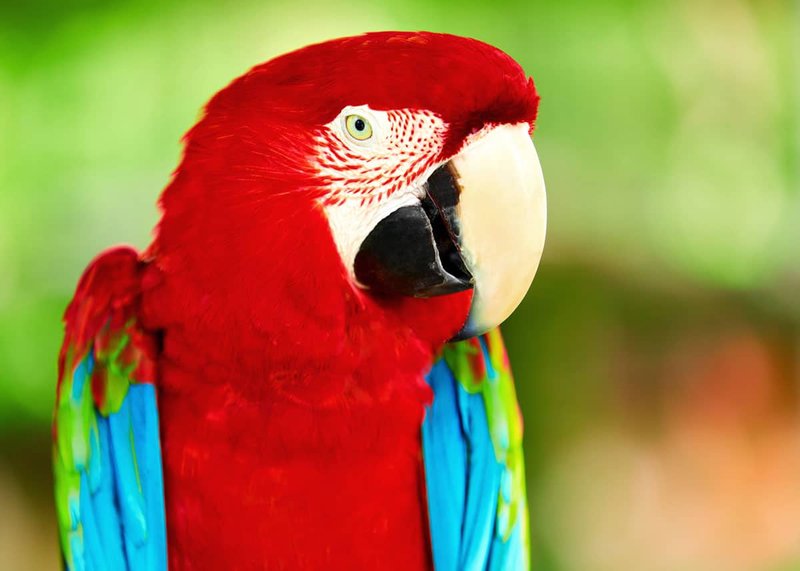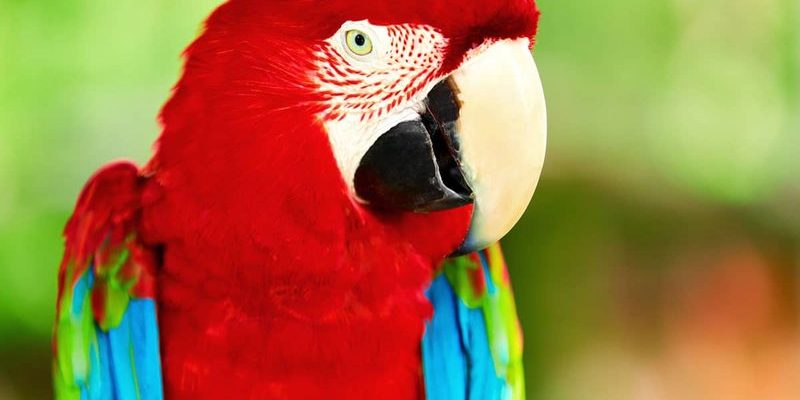
Think of macaws like housemates who can chat back and have a playful, feisty side. Sure, they can be affectionate and entertaining, but there’s also a flip side to their charming demeanor. In this article, we’ll explore the potential dangers associated with macaws, helping you understand how to interact safely with these stunning birds.
Understanding Macaw Behavior
To gauge whether macaws could pose a risk to humans, it’s essential to understand their behavior. Macaws are known for their intelligence and social nature. They thrive on interaction and often mirror the emotions and actions of those around them. This means their behavior can vary greatly, depending on their environment and how they’re treated.
Honestly, macaws can quickly become bored if they don’t have enough mental stimulation. When this happens, they might act out. Imagine a child who hasn’t had enough playtime—well, that’s how a macaw feels without proper engagement. They may become nippy or territorial, especially if they feel threatened. Recognizing these behavioral signs is key to ensuring a safe relationship.
Physical Strength of Macaws
You might be surprised to learn that macaws possess impressive physical strength. Their beaks are not just for show; they can crack open hard nuts and seeds, and that same strength can lead to painful bites if a macaw feels threatened. A bite from a macaw can break the skin, leading to bleeding and infection.
Here’s the thing: while most macaws are not inherently aggressive, they won’t hesitate to defend themselves if they feel cornered. So, if you’re getting a bit too close to their space or handling them incorrectly, you might end up on the receiving end of a bite. It’s crucial to respect their boundaries and understand the signs that indicate they are feeling uneasy.
Signs of Aggression in Macaws
Every animal has its warning signs before it acts aggressively, and macaws are no exception. Learning to recognize these signals can help prevent potentially dangerous situations. Common signs include:
- Fluffing Up Feathers: When a macaw fluffs its feathers, it might be trying to make itself appear bigger as a warning.
- Chirping or Squawking: Loud vocalizations can indicate stress or agitation. It’s a clear message that something isn’t right.
- Glaring:** If the bird fixes its gaze on you and seems tense, back off and give it some space.
If you see any of these behaviors, it might be a good time to give your macaw some downtime. Respecting their need for personal space can go a long way in maintaining a harmonious relationship.
Socialization and Training
Proper socialization and training are vital to ensuring that macaws don’t become dangerous to humans. From a young age, they should be exposed to different sounds, sights, and people. Just like teaching a child, patience is key when training a macaw. Start with positive reinforcement methods—treats, praise, and playtime can help shape their behavior positively.
Consistency is also important. If one day you allow your macaw to sit on your shoulder but the next you scold it for the same behavior, it can create confusion. Establishing clear rules and sticking to them helps your macaw understand what’s acceptable and what isn’t.
Feeding and Ownership Considerations
When it comes to macaws, their diet plays a surprising role in their behavior. Feeding them the right foods is essential for their health and temperament. A poor diet can lead to irritability and aggression, much like how humans might feel when they’re hungry or not feeling well.
Moreover, owning a macaw is a long-term commitment. Some species can live for 50 years or more, so it’s essential to be prepared for the long haul. If you’re considering adopting one, make sure you’re ready for the responsibility. They require a lot of time, interaction, and mental stimulation.
Is It Worth the Risk?
You might be wondering, is owning a macaw worth the risk? The answer depends on how much you’re willing to invest in learning about their needs and behaviors. If you approach this relationship with care, patience, and respect, a macaw can bring joy, companionship, and a lot of fun into your life.
But if the prospect of a bite or an aggressive interaction worries you, it might be wise to reconsider or to educate yourself further. There are many avian species that might suit your lifestyle better, especially if you’re a beginner.
In closing, while macaws can indeed pose some risks, they are not inherently dangerous creatures. Like any pet, they require proper care, understanding, and training. If you’re willing to invest time and effort into building a strong relationship, your macaw can be a loyal and loving friend.
So, before welcoming a macaw into your home, take the time to learn about them. Understand their behavior, respect their space, and you’ll likely find that these birds can be fascinating companions without the danger. Remember, it’s all about mutual respect and understanding!

